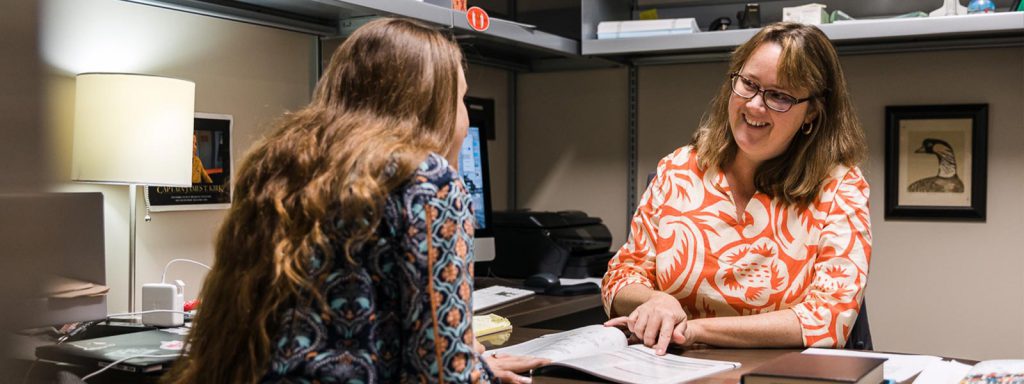The M.A. program requires 30 credit hours of coursework and 3 credit hours for a thesis or project. A third option allows students to take one additional 6000-level technical communication course in lieu of a thesis or project.
The five core M.A. courses provide a strong foundation in rhetorical theory, communication theory, design theory, and other theories informing our discipline. The focus in these courses is to use practical projects that allow students to apply the theories they study in a variety of professional contexts.
Additional required electives offer students options for more specialized study:
- Writing and Designing Online Help Systems
- Proposal Writing
- Project Management
- International Technical Communication
The M.A. thesis and the M.A. final project provide students with the opportunity to do an in-depth study on a well-focused topic. Recent thesis titles include
- On Copyright: What Technical Communicators Need to Know
- Technical Illustration: The Changes and Challenges Presented by Advancements in Technology
- Narrative in Technical Communication
M.A. projects differ from theses because students create a final technical communication deliverable such as an interactive website or multimedia product. For example, From Concept to Market: Technical Communication Genres to Assist Small High-Tech Businesses in Bringing a New Product to the Market included an online resource with overviews, templates, and additional resources for small businesses.
Students enrolling in the M.A. program have backgrounds in a number of diverse fields including sociology, Russian language, psychology, elementary education, social sciences, English literature, technical communication, political science, religion, and interpersonal/organizational communication. Additionally, several students already have master’s degrees in other fields when they enroll in the program.
Professional Development
Students have the opportunity to become active in the local chapter of the Society for Technical Communication. The Orlando Central Florida chapter holds monthly meetings; at these meetings students will have opportunities for pursuing professional development and networking.
Admissions and Program Requirements
For more information about admissions and program requirements and university graduate policies, consult the UCF Graduate Catalog.
